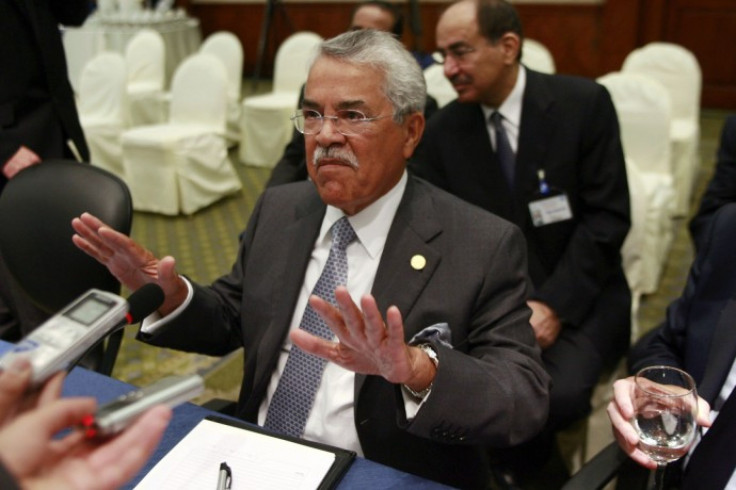When will Saudi oil policy kingpin al-Naimi retire?

A day after Reuters said in an exclusive report that Saudi Arabia was vetting candidates to replace aging oil minister Ali al-Naimi, the oil policy maven himself stepped out to deny the report, saying It's rubbish, exactly rubbish.
The report had said the oil policy chief of the world's biggest crude exporting country could step down as early as in late February or early March next year and that the Saudi Supreme Petroleum Council (SPC), which is chaired by King Abdullah, had asked the 75-year-old minister to nominate his preferred candidates.
Given his age, it would not be surprising if al-Naimi wished to retire, although age alone is not a particular problem in Saudi Arabia, where the highest echelons of the ruling royal family are almost all in their 80s,” said IHS Global Insight's Senior Middle East Energy analyst Samuel Ciszuk.
Reports that al-Naimi was planning retirement have become increasingly frequent over the past three years, notes Ciszuk. However, the onset of the global economic crisis in 2008 briefly halted talk of his impending retirement as the Saudi rulers apparently wanted him to stay on at the helm of oil policy until the crisis was over and oil prices recovered.
Al-Naimi, who became the oil minister in 1995, is seen as an able communicator who understands the nuances of the oil market and pricing though some of his decisions have been called into question. Much of his authority in the global petroleum scene could however be attributed to the status of his country as the biggest crude reserve and the only producer with significant spare capacity - factors that make it the de facto leader of the Organization of the Petroleum Exporting Countries (OPEC).
He was instrumental in getting the OPEC members cut supply drastically in early 2009 as prices plunged to a rock bottom $33 a barrel.
Analysts have said it would not be easy for Saudi Arabia to immediately replace Naimi with someone of his standing and clout among the oil ministers.
According to the report, the minister's senior economic adviser and leading UN climate talks negotiator Mohamed al-Saban and former Saudi Aramco head Abdullah al-Jumah have been picked by al-Naimi as his preferred choices.
Ciszuk observes that both al-Saban and al-Jumah are able administrators who can assume leadership at the oil ministry though Naimi is not easy to replace given his unique talents. ... both candidates rumored to be nominated by al-Nuaimi have decades of experience and could ease into their roles relatively swiftly, although it would take time to build up the same diplomatic touch and kudos with individual oil ministers in OPEC as al-Naimi, in place since 1995, enjoys, says Ciszuk.
Though a change of guard at the Saudi oil ministry looks more certain than otherwise, Ciszuk notes that the fact that Iran will assume the revolving chairmanship of the OPEC next month can potentially impact the timing of his retirement. Indeed, with notorious oil-price hawk Iran chairing OPEC from 1 January 2011, there might be a feeling from its leading member and traditional dove, Saudi Arabia, that a change in the oil minister post might be premature and that a switch could wait until the revolving chairmanship has moved on, he says.
Naimi apparently linked the talk about his retirement to perceived effects at disturbing the market. Why do you want to disturb the market? The market is in balance. Leave the market alone, he said at the OPEC meeting in Quito over the weekend, when asked about the cartel's plans about production quotas in future.
Neither Naimi nor his country would like to add fuel to the guessing game, but would rather deny any plans about a change of guard at the oil ministry.
Whatever the oil minister's choice regarding his retirement, for the sake of minimizing oil market speculation, the decision will be denied, until taken, says Ciszuk.
© Copyright IBTimes 2024. All rights reserved.











